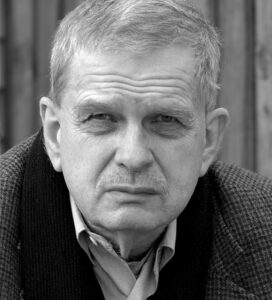
Tomas Venclova – Laureate of The Zbigniew Herbert Award 2023
Born in Lithuania in 1937 he is presently Lithuania’s most outstanding poet.
As a dissident and founder of Lithuania’s Helsinki Group he left the USSR and Lithuania in 1977 and settled in the USA, where he lectured on Slavic Literature for many years at Yale University.
Tomas Venclova is laureate of numerous literary prizes and the recipient of numerous honoris causa doctorates. Czeslaw Milosz first brought his poetry to the Polish reader, by publishing a translation of “Winter Dialogue” on the pages of the Paris based Kultura. His numerous poetry anthologies and essays, including a tome of his correspondence with Czeslaw Milosz subsequently appeared in Polish. The most important anthologies published in Polish include „A Winter Dialogue” and Obrócone w ciszę (“Turned Into Silence”) as well as a tome of essays Opisać Wilno (“Vilnius”) and in-depth interview Magnetyczna Północ (“Magnetic North”). His poems and essays have also been translated, amongst others, into English, Chinese, German, Italian, Swedish and Ukrainian.
His association with Polish writers and intellectuals began in the 1970s, whilst in the 80s he linked up with a circle of Polish émigré writers, which led to him joining the editorial board of Zeszyty Literackie in 1983, where he published his essays and poems for over three decades. He also translated the work of Polish poets into Lithuanian, including those by Cyprian Kamil Norwid, Zbigniew Herbert, Czesław Miłosz and Wisława Szymborska, as well as a monograph on the work of Aleksander Wat.
After the fall of the USSR he became very much involved in Lithuania’s cultural life. He also worked – together with Czesław Miłosz – on building a rapprochement between Lithuania and Poland. Broadly educated he numbers amongst the most eminent erudite humanists in the literature of our time. Not unlike Zbigniew Herbert he often draws on classical history in his work, but above all else he opposes cruelty and injustice. Whilst not shunning difficult subjects, he imposes no answers, rather encourages courageous thought.
